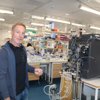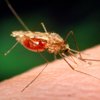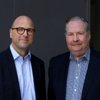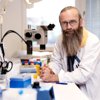Fritextsökning
Artiklar per år
Innehållstyper
-

Innovative start-up helps doctors, scientists and industry balance coagulation risks
For many doctors caring for seriously ill patients, for example, in stroke units and cancer wards, maintaining the life-saving balance between bleeding and thrombosis is an ongoing challenge. In the late 1980s, scientists at Maastricht University in the Netherlands developed an innovative method, the thrombin generation assay (TGA), which provides a complete overview of a physiological process crucial for maintaining normal haemostasis.
-

Carl Borrebaeck – professor and serial entrepreneur with a taste for speed
Award-winning cancer researcher, the founder of many listed companies, and constantly in the academic and commercial spotlight for decades. However, Carl Borrebaeck, Professor of Immunotechnology at Lund, is not yet satisfied. “We have a new, potentially super exciting project in the pipeline,” he says.
-

The Covid pandemic accelerated the development of cancer vaccine
The Covid pandemic gave a major boost to the vaccine field. The Danish biotech company Expres2ion Biotechnologies, which is developing a vaccine against breast cancer, testifies to this.
-

Beta-blockers are often given unnecessarily, a study finds – “This will affect future practice”
Patients who have suffered a minor heart attack do not benefit from beta-blockers, according to a major new study that may change guidelines for cardiac care.
-

The life science strategy – what the industry wants
are some of the points that are essential to review.
-

“Life science is important on a personal level”
From the High Coast to the Government Offices. Jeanette Edblad is a native of Ångermanland, and since September last year, she has been Head and Coordinator of the Government’s Life Science Office.
-

Ozempic may benefit hip replacement surgery
The high-profile drug for type 2 diabetes and weight loss may be beneficial in other areas. One such area is for patients undergoing hip replacement surgery, a new study suggests.
-

”Information security must become part of the Swedish life science strategy”
Sweden needs knowledge security to stand strong in the global competition, writes Björn Ursing in an opinion article.
-

Unexpected study results on testosterone – no reduction in fracture risk
Testosterone treatment is known to increase bone density and bone quality. However, a study now suggests that supplementation with the male sex hormone does not reduce the risk of fractures, but rather increases it. The researchers behind the study were surprised by this result.
-

Radiofarmaka lockar allt fler investerare
Intresset för radiofarmaceutiska läkemedel är på stark uppgång bland amerikanska investerare, visar en ny sammanställning.
-

Anna Törner: The clinical trial – Periscope to reality
What happens to the patients in the clinical trial is not very interesting, writes Anna Törner in a column.
-

The art of building a biologic drug
The first biosimilar from Xbrane Biopharma was launched earlier this year, and several more are under development at the company’s facility in Solna, Sweden. “We do everything in-house ‒ from DNA fragments to a final process,” says David Vikström, Chief Technology Officer at the company.
-

The Swedish Academy of Sciences: “We have too many researchers”
Sweden does not need more researchers, but it does need better ones. According to the Royal Swedish Academy of Sciences, funding should be distributed to favour excellence.
-

“You discover one thing – and then 10 new questions arise”
COVID-19, diabetes, heart disease, and the impact of dog ownership on humans are just some of multitasker Tove Fall’s areas of research. However, her current focus is on her next field: the role of gut flora in human health.
-

BMS i storaffär – stärker upp inom cancerområdet
Läkemedelsjätten Bristol Myers Squibb utökar sin portfölj inom cancerläkemedel genom att förvärva amerikanska Mirati Therapeutics för upp till 5,8 miljarder dollar, motsvarande närmare 64 miljarder kronor.
-

Rickard Sandberg on this year’s Nobel Prize in Medicine: ”A key discovery”
The discovery that paved the way for the development of todays mRNA vaccines is the basis for this year’s Nobel Prize in Physiology or Medicine.
-

Astra Zeneca’s Sweden CEO: “We have great faith in our portfolio”
It all started with a summer job as an operator at Astra’s chemical factory in Snäckviken, just outside Södertälje. More than three decades and countless different assignments later, Per Alfredsson, born and raised in Södertälje, is CEO of Astra Zeneca Sweden, which employs 7800 people in Södertälje, Stockholm and Gothenburg. “It was a very special feeling to be in charge of the entire organisation,” he says in an interview about his career and potential future blockbusters.
-

Samuel Lagercrantz: A special kind of hellishness afflicts post-COVID patients
In addition to the disease itself those suffering from post-COVID have to deal with people who try to label them as hypochondriacs, writes Samuel Lagercrantz in an editorial.
-

Life Science Sweden heads to the Oresund region! ‒ Hello there Michael Linnell
Life Science Sweden’s The Future of Swedish Danish Life Science and New Updates in Drug Formulation & Bioavailability meetings are coming up soon. We asked Michael Linnell, project manager for Life Science Sweden’s event portfolio, a few short questions.
-

Anna Törner: The minute between life and death
“I have never told anyone about this day that happened more than 20 years ago. But I sometimes reflect on what happened, on what might have happened. When I try to understand why I haven’t told anyone, I find the answer: a feeling of shame. There is no forgiveness for something like this, even though it is very human to be distracted for a moment,” Anna Törner writes in a column.
-

A new malaria vaccine offers hope but much more research is still needed
There has long been no vaccine against malaria, but there have been breakthroughs in recent years. However, it is still unclear how we become immune to the malaria parasite, and this is a vital piece of the puzzle for creating effective vaccines, says malaria researcher Kristina Persson.
-

Looking for greater Nordic cooperation – “We have Norway and Finland in our sights”
How can Medicon Valley Alliance bring the big pharmaceutical companies back to the organisation? Life Science Sweden discussed this topic and others with the cluster organisation’s new radar pair.
-

Conference on Alzheimer’s reveals several advances in the field
In Gothenburg, Sweden, researchers and pharmaceutical companies from all over the world gathered to discuss one specific issue – neurological diseases. Life Science Sweden has talked to some of those that attended the conference.
-

Därför är det så svårt att hålla sig från snacksen
Okej alla gottegrisar, forskare vid Max Planck institutet och Yale påstår att om vi regelbundet mumsar i oss små mängder livsmedel med högt fett- och sockerinnehåll, så förändras våra hjärnor – hjärnan vill ha mer av det goda.